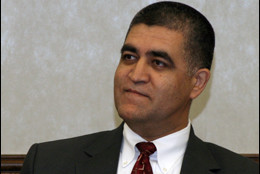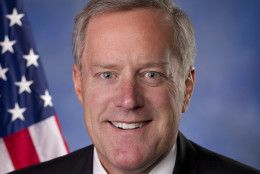Technology
-
Greg Gardner of NetApp details four key strategies to making data center consolidation into a business and decision-making activity.
July 28, 2015 -
The head of U.S. Cyber Command says he wants to create an effective early warning system for cyberspace. But to do it effectively, he says he needs more voluntary sharing of cyber threat information between the federal government and commercial companies.
July 28, 2015 -
A new memo from David Mader, the OMB controller and acting deputy director for management, requires agencies to move to either the Treasury Department’s Internet Payment Platform or another approved shared service provider. OMB said agencies process only about 40 percent of all procurement invoices electronically today.
July 28, 2015 -
The Senate Appropriations Committee rejected an amendment that would give the Office of Personnel Management an extra $37 million to make IT upgrades sooner rather than later. Senate Appropriations Committee Vice Chairwoman Barbara Mikulski (D-Md.) offered the amendment. She said OPM needs to fix its IT infrastructure immediately and described the amendment as "emergency funding". Zal Azmi is president and chief operating officer for IMTAS Technologies and former chief information officer at the Federal Bureau of Investigation. He tells In Depth with Francis Rose that agencies need to rethink cybersecurity entirely.
July 27, 2015 -
For now, former Deputy OMB Director Beth Cobert is in charge at the Office of Personnel Management. She is already talking to congressional leaders about the way forward for OPM and she's making a good first impression on them. Rep. Mark Meadows (R-N.C.) is the chairman of the House Oversight and Government Reform Subcommittee on Government Operations. He tells In Depth with Francis Rose that the outreach from Cobert is rather uncommon.
July 27, 2015 -
The never-ending talk about cloud computing makes it seem like agencies have fully bought in and everything is going to the cloud. But a recent event with several federal technology executives showed just how far cloud and open source have to go.
July 27, 2015 -
The long and twisting road that is the Homeland Security Department’s continuous diagnostics and mitigation (CDM) program got a nice jolt earlier this month. The Government Accountability Office resolved a bid protest that has impacted the implementation of new cyber tools and services.
July 27, 2015 -
The commander of US Cyber Command says he wants to create an effective early warning system for cyberspace – potentially ringing alarm bells when foreign adversaries are preparing attacks on government, or even private networks. But to do it, he says he needs more voluntary sharing of cyber threat information between the federal government and commercial companies. More from Federal News Radio’s DoD reporter Jared Serbu.
July 24, 2015






